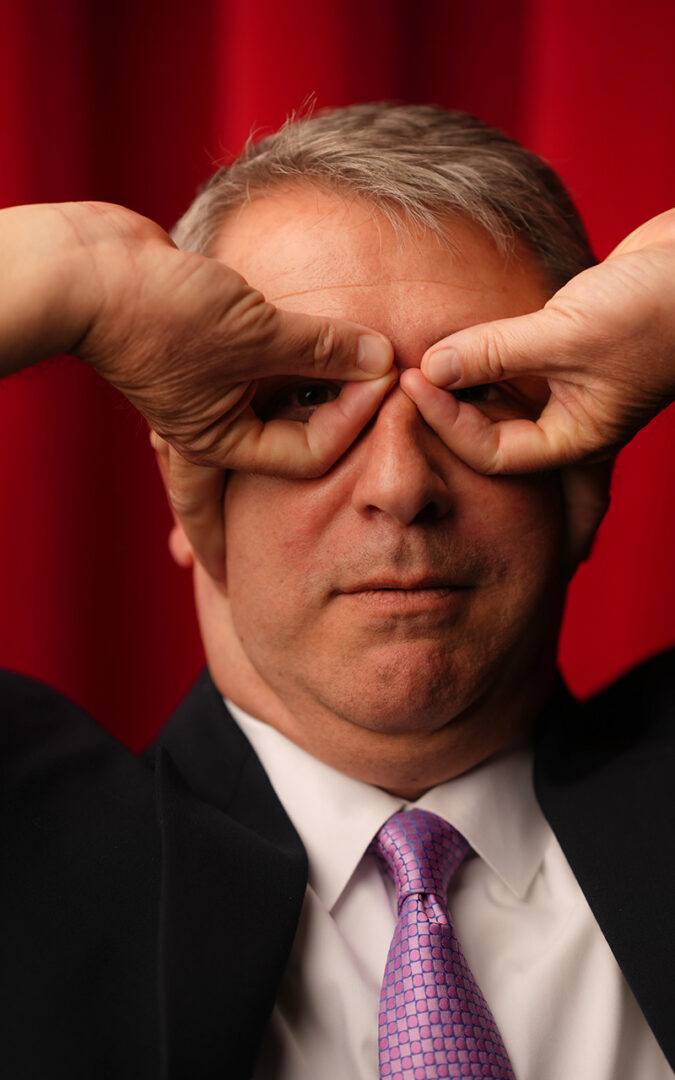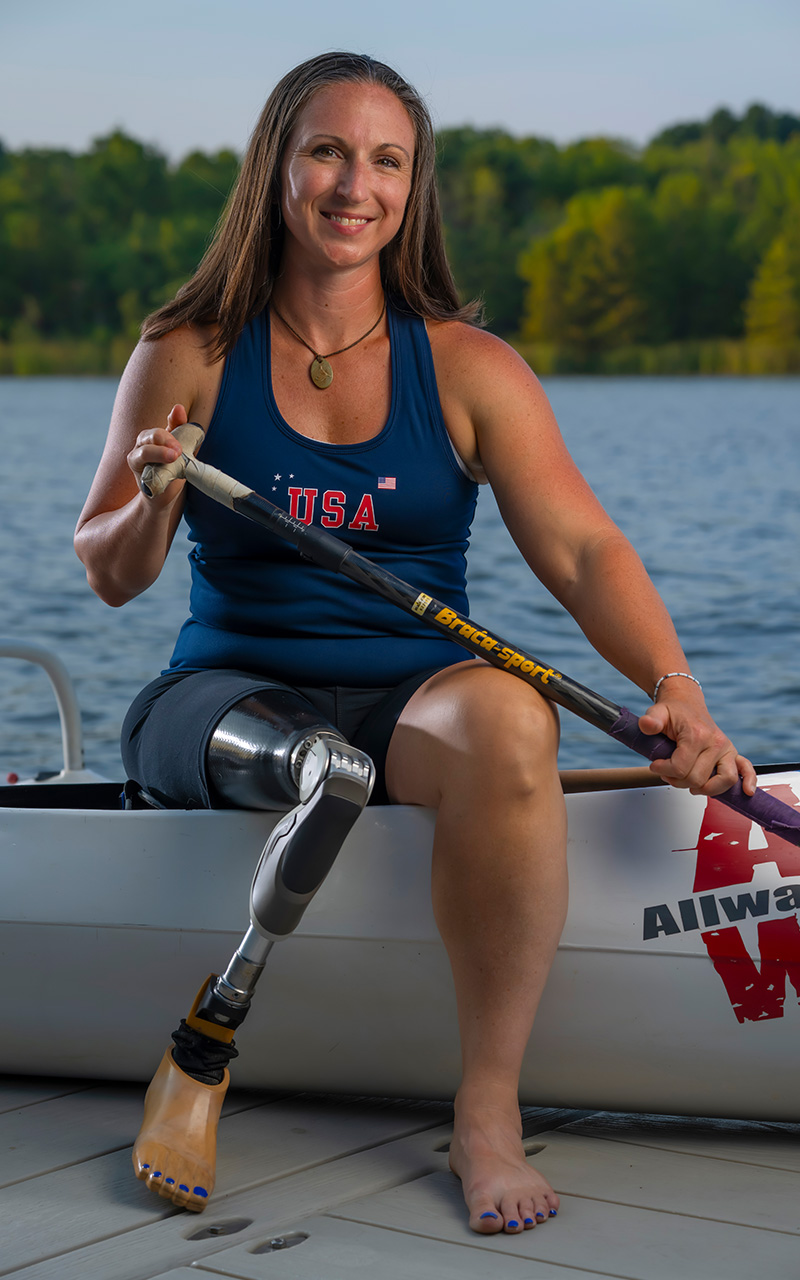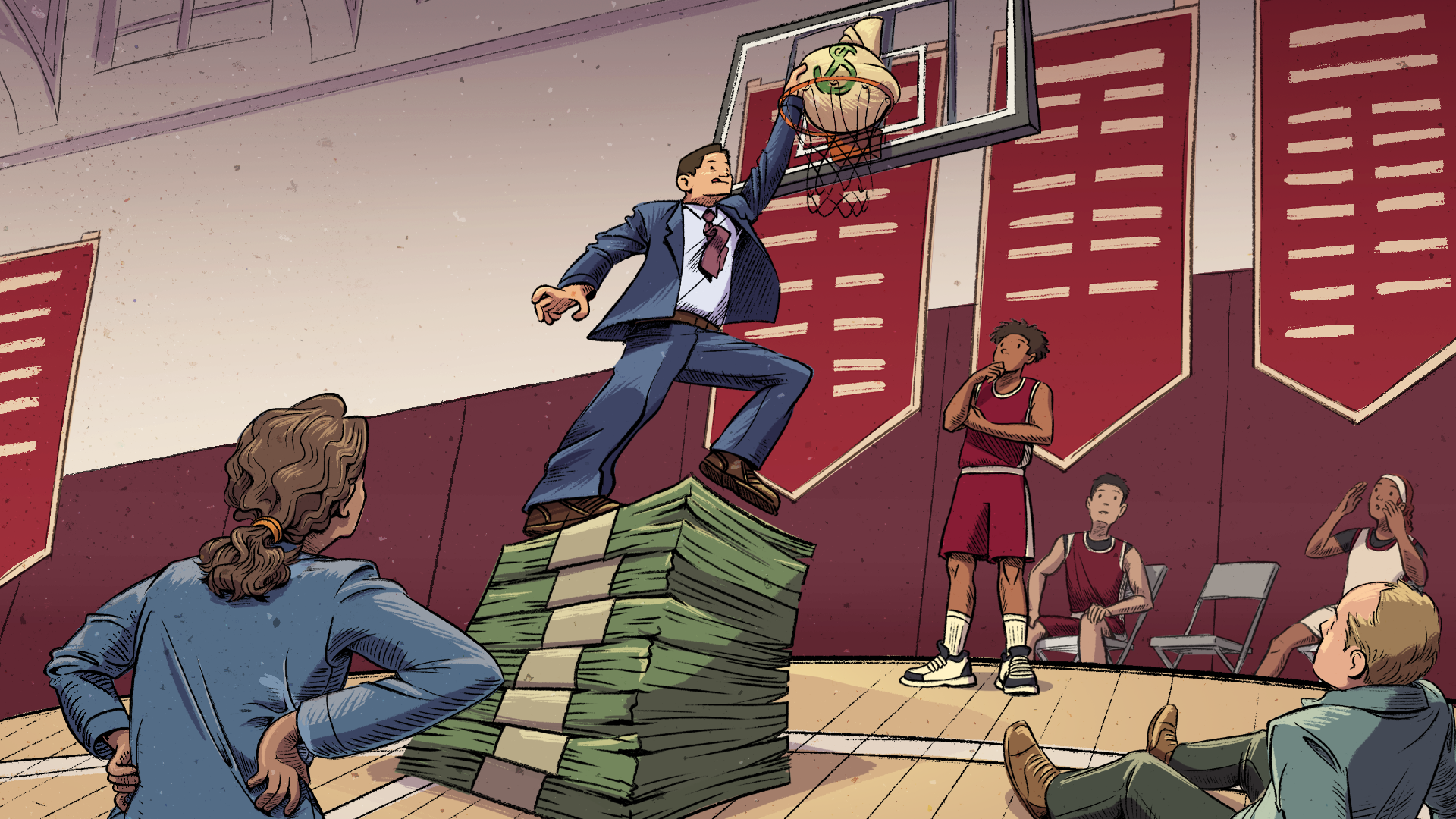The Future of Humanities:
A Conversation with Dean Tim Caron
For those who might not know your background, can you talk about your upbringing and education?
I was born in Alabama and raised in Louisiana. Neither one of my parents graduated from high school, and I was not on anyone’s college track when I was in school. When my dad retired from the Air Force, he wanted to settle in Alexandria, a small town in central Louisiana.
I went to a little college in neighboring Pineville and fell in love with the idea of a career at a university. I spoke with the chair of the English department, Dr. Rosanne Osborne, about six weeks into my first semester and asked how I could get her job. She became my academic advisor and mentored me for the four years I was there. I still think a lot about her. I would not have made it to graduate school without her.
What brought you to CSUDH?
I had been teaching at Cal State Long Beach for almost 20 years, coming up through the ranks. I turned 50 and thought that was where I’d retire. Then, I got an email from a friend about an associate dean position at CSUDH. I started reading about the campus and realized that more than any other in the 23-campus system, Dominguez Hills really delivers on the CSU promise. I thought, how many times do you get to reinvent yourself, especially at 50 years old? I wanted to be a part of what CSUDH was doing, and it was the best professional decision I’ve ever made.
What specific strengths do you think CSUDH students bring to the Arts and Humanities?
I love our students. They know what’s at stake. Many of them come from an educational system that hasn’t just neglected them or pushed them to the margins, but has been actively antagonistic towards them. When our students get here, they have a tremendous desire to learn. Many of them have overcome such tremendous odds. That’s what I mean when I say they know what’s at stake. They understand the transformative power of an education and the sacrifices that they and their families are making for them to be here.
One of the things I’ve been doing this year is asking faculty to invite me to their classes, not as an evaluation but just so I can be a student again. I’ve been in discussions in history class about the Watts Rebellion, and in Asian Pacific Studies classes discussing the U.S. testing of nuclear weapons in the South Pacific. I attended a ceramics class and made a mug. It even holds water! This lets me talk to students and see our world-class faculty do the amazing things they do in the classroom every day. Our students are smart and insightful, and they’re always looking for ways to make connections, to bring their authentic selves into the classroom.
What do you say to those who might think that a degree in Arts and Humanities doesn’t present the same economic opportunities or job prospects that other academic fields like information technology or business do?
With all due respect, I would say that’s nonsense. This is something that keeps me awake at night, because I think we’re losing the argument on every level. There’s so much messaging out there, even at the state level, that we no longer value a college degree. Every single measurement that we make about mid-career earnings for people who have degrees in Arts and Humanities—they are just the same as the STEM fields.
The National Association of Colleges and Employers administers a survey every year to companies across the country to find out what skills they are looking for in recent college graduates. They want candidates with great written and oral communication skills who can work collaboratively in teams, who can bring creative solutions to problems, who are culturally competent, and who can work effectively with others from different religious, ethnic, racial and socioeconomic backgrounds.
Nobody equips students with these skills better than the College of Arts and Humanities. I want the whole range of humanistic and artistic inquiry to be open to every CSUDH student.

Follow the thing that you love. You want to make movies? Do that. Chemistry? Be a great chemist.”
What is it that Arts and Humanities can offer as a potential career? Why is it important in your view?
It’s not transactional for me. Think about what it is we do. We enable students to read, synthesize, and make arguments, oftentimes from contradictory evidence. So, how do you sift through this kind of information, work with people from different backgrounds or cultures or values, and then make an informed and reasonable decision in whatever line of work you might be in?
When I was an associate dean, I would advise parents during student orientation meetings to encourage their kids in whatever academic discipline they chose. If they decide they want to major in dance, don’t try to talk them out of it. We need to support them, because students thrive when they follow their passion.
How many times have I heard of a student who started in pre-law or pre-med and decided they couldn’t continue? Why did they start there in the first place? Quite often because a parent or some other authority figure thought it was what they should do. Follow the thing that you love. You want to make movies? Do that. Chemistry? Be a great chemist.
We also need an informed citizenry that can appreciate and support art and theatre and music. We need people who understand that there are real facts, not just alternative ones, and who can help us make sense of the world.
How has Arts and Humanities education changed or evolved in recent years?
The field has become more inclusive. I’m old enough to remember that my general education package back in the 1980s was stale, pale, and male. First as associate dean and then as dean, I’m proud that we blew up the distribution of general education classes. Now, humanities classes that count towards these requirements include Africana Studies, classes in Asian Pacific culture and women’s studies, classes in labor studies, hip-hop music, and the history of rock and roll.
Artificial Intelligence has been dominating headlines in and outside of higher education. Do you see any useful and ethical applications of AI in Arts and Humanities?
We’re fortunate to have Dr. Siskanna Naynaha in our English department. She serves as coordinator for our Writing Across the Curriculum program. She’s thinking a lot about AI, and she has the University Writing Committee thinking about it as well. She’s leading the charge on campus about the ethical ways to use AI. As Dean, my job is not to force my agenda but to get out of the way and let our faculty and our students decide where we’re going.
That said, I’m less optimistic when it comes to AI. What makes art really powerful to me is that there’s a human hand behind it. I think we’re getting to the point where the human hand is farther and farther away. I think AI is changing things, but we haven’t thought enough about what that means for us. We’re already almost cyborgs in terms of our reliance on technology. The first thing we interact with when we wake or before we go to sleep is our mobile phone. These machines know so much about us—our heart rates, our sleep patterns. So, I’m nervous about the possibility that AI will just worsen a lot of our bad habits.
How was it to transition from full-time faculty to an administrative role? Do you miss the classroom?
No. After 28 years, I’m good. I can tell you what’s rewarding for me about being a full-time administrator. What I do as a dean at CSUDH, if I’m successful, is help every student at the university, not just the 30 or 40 students in the classes that I teach. My impact as a teacher was a little narrow. I really enjoyed it, and I was really good at it. I still like sitting in on classes and being a student, but I don’t miss teaching. Administrative work has a different set of challenges. It’s a lot more stressful, but there are other parts of my brain that I get to exercise.


